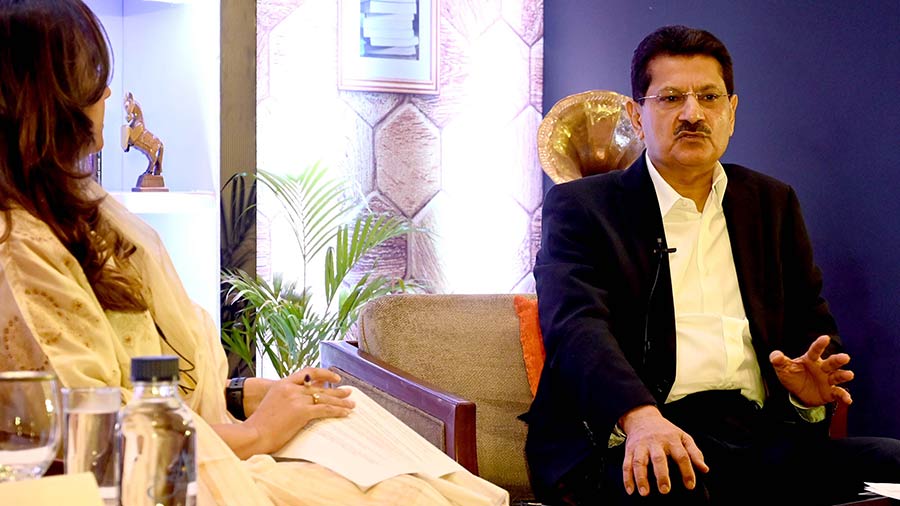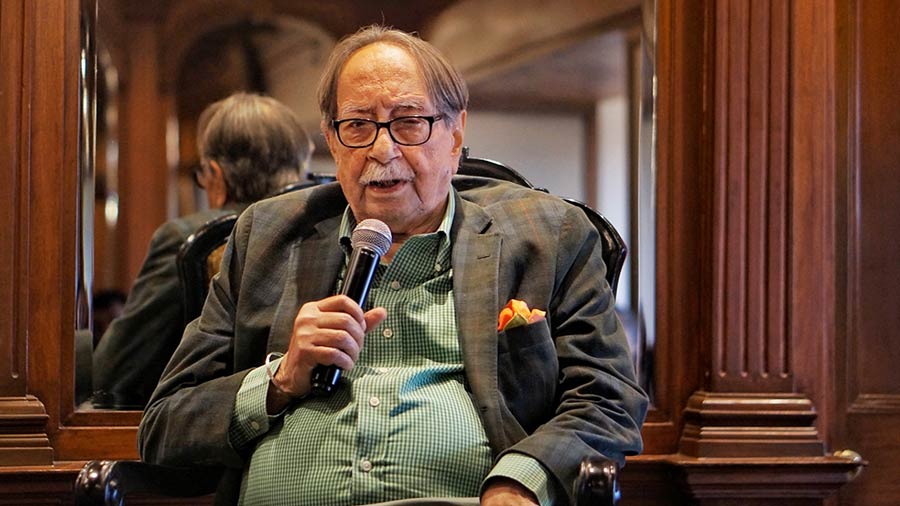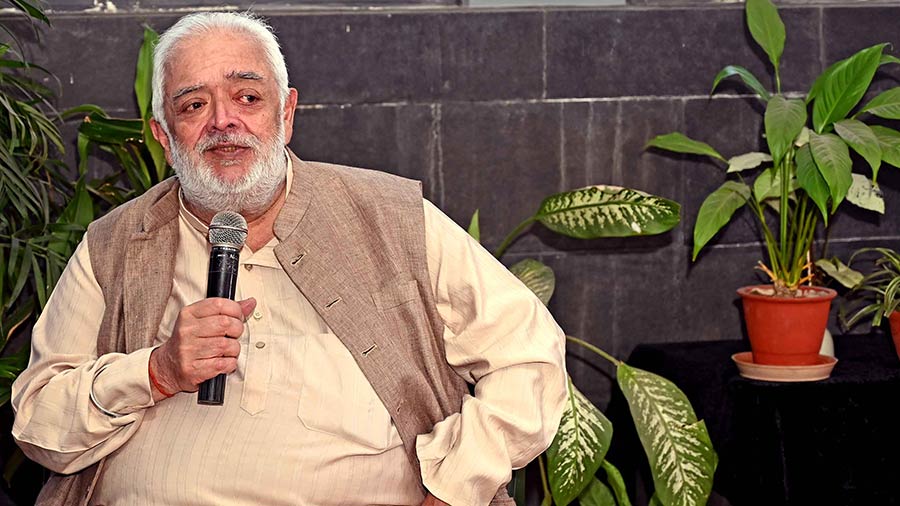“You shouldn’t get deterred from your karma. You should continue with your work as it is,” was something that Ram K Sharma, the managing director of Baidyanath, had learnt at the young age of 12. Since then, he has believed in karma and has researched extensively on it to lead a life based on its laws. The culmination of this research is his book, Karma and You: Create Your Own Destiny, which was launched at an event in February, organised by Prabha Khaitan Foundation at ITC Royal Bengal, supported by Shree Cement Ltd.
Aroop Biswas, minister of power, housing, youth services and sports, government of West Bengal, was the chief guest, while Sanjiv Puri, chairman and managing director of ITC Ltd, was the guest of honour. “What is karma? Karma is a part of our daily life. Our karma affects our society, family and country,” said Biswas at the beginning of the event. A similar sentiment was echoed by Puri, who said that the book was a “fascinating piece of work.” Elucidating on the concepts of global karma and corporate karma, Puri emphasised the need for creating positive karma in our lives by consciously working towards taking actions that benefit others.
The event was also attended by Swami Viswadiyananda Maharaj, a senior monk of Belur Math and currently posted at Swami Vivekananda’s Ancestral House and Cultural Center. Reiterating Swami Vivekananda’s teaching on helping and serving others, he expounded on the concept of karma before the evening’s main discussion got underway.
Speaking about the book and his life, Sharma was in conversation with Jyoti Kapoor, Ehsaas Woman of Nagpur.
An early initiation into karma
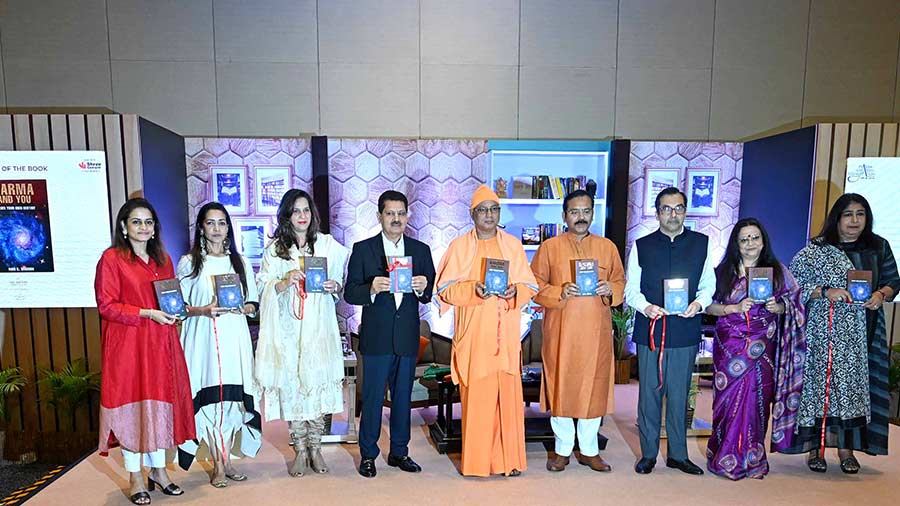
Sharma’s book, ‘Karma and You: Create Your Own Destiny’ unveiled at ITC Royal Bengal on February 28
Recollecting how he first came across karma, Sharma explained how when he was young his mother took him to see a sadhu, who ingrained in him the concept of karma. “In those days, the family had built an ashram in Vrindavan for pilgrims and devotees. We used to provide free food and baba (the aforementioned sadhu) knew this. Suddenly, one day, he asked my mother, ‘When people go to your ashram and you provide them with food and shelter, do they complain and curse you sometimes?’ My mother was taken aback, but said yes. He started laughing and said, ‘This is the paradox of life: It is their karma to curse you, to shout at you, even though you are providing them with free food and rest. But that shouldn’t stop you from continuing to do your karma.’ I was a young boy at the time and what he said left a lasting impression on me,” said Sharma.
Speaking of spousal karma, Sharma emphasised the need for partners to help fulfil each other’s karmic needs. For achieving divine karma, he pointed out the three ways of realising it — through pure love and devotion, through gyan (knowledge of the world), or through karma itself, which means doing right even in difficult times.
‘This was our karma for the country…’
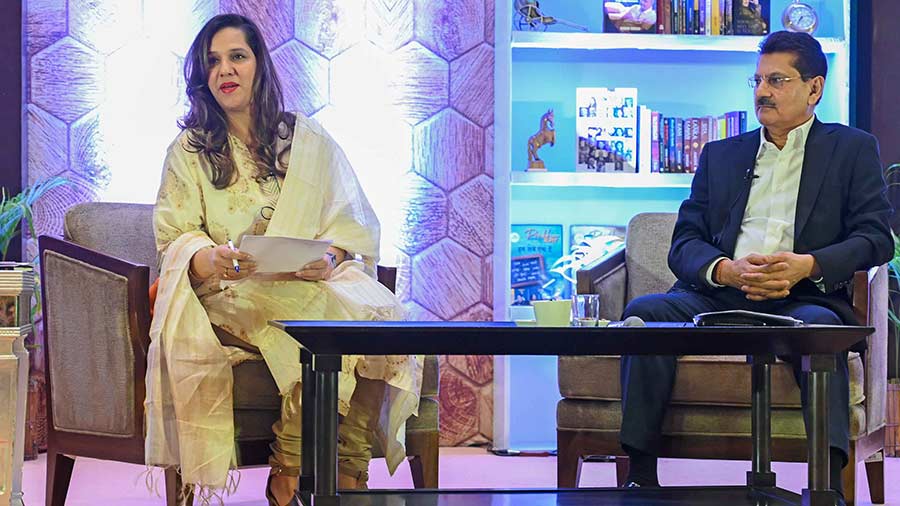
Sharma in conversation with Jyoti Kapoor
Sharma went on to narrate how during the Quit India Movement his father had opened the gates of Baidyanath to shelter prominent leaders of the movement. “All those young freedom fighters who came and stayed were barred from entering the city. They came dressed as coolies and truck drivers so that they wouldn’t get caught. The British had said that anybody harbouring them would be punished and they stayed at our office quietly. The next day, my father gave a holiday to all the employees to join the Quit India Movement, even at the cost of backlash from the Britishers. We do karma for different reasons, this was our karma for the country. We grew up with these stories and were encouraged to do karma without thinking of the consequences.”
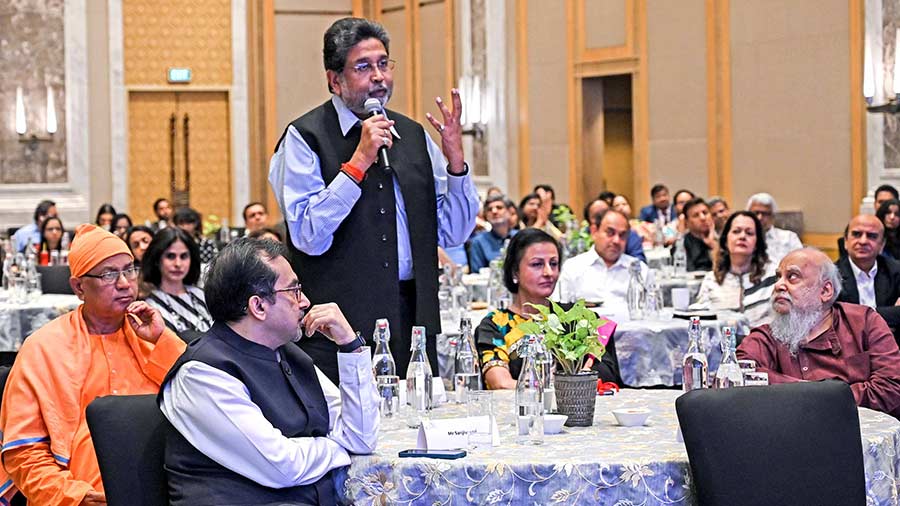
Harshavardhan Neotia offered his perspective on karma
Among those in the audience was Harshavardhan Neotia, chairman of Ambuja Neotia, who highlighted how the law of karma posits that every karma will have an equal and opposite reaction. “When you do bad karma, you’ll suffer its consequences, and when you do good karma, you’ll be rewarded. But bad karma is not cancelled out by good karma. I think the issue of karma has to begin with thought, then with words, and finally with actions,” observed Neotia.
The event came to a close with the vote of thanks being delivered by Malika Varma, Ehsaas Woman of Kolkata.
Guests speak
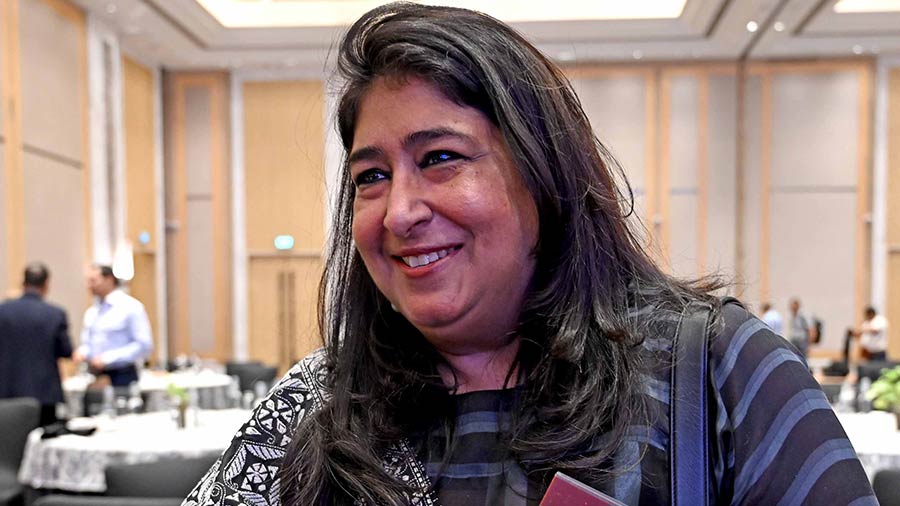
Malika Varma

“This topic is very special to me because I’m a big believer in karma. I think somewhere all of us are guided by karma. The more you get into the intricacies of karma, the more you’ll be able to sort yourself out. I can’t wait to read the book.”
— Malika Varma, Ehsaas Woman of Kolkata
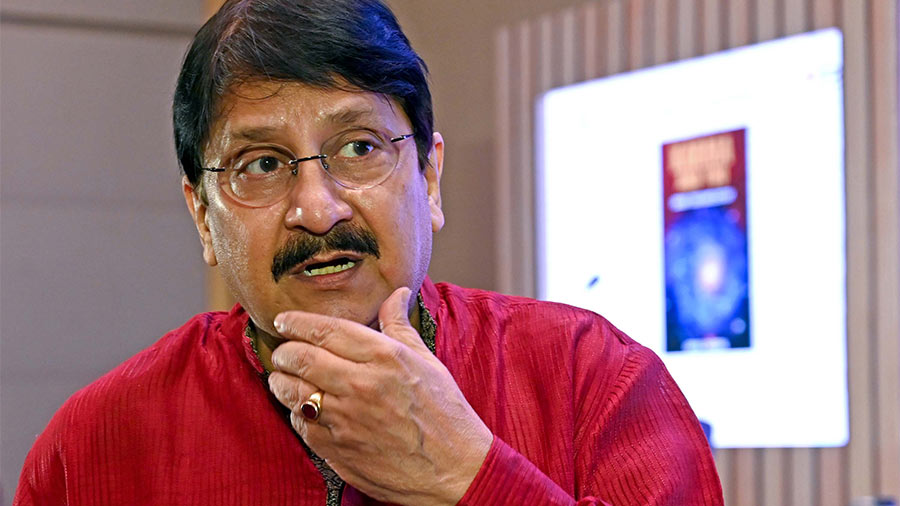
Arjun Chakraborty

